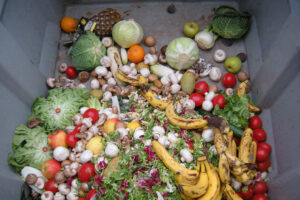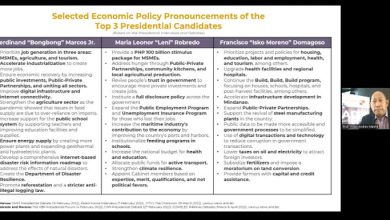Food recycling

People are now struggling with higher prices for fuel and food. Couple this with long-term issues in agriculture, which ultimately impact food supply. Even food imports have been disrupted, by rising transportation costs as well as the trouble in Ukraine — a major exporter of wheat and other food products. And, instead of saving resources, many people still end up wasting food.
The challenge for the present Congress, which opens on July 25, is to succeed where previous congresses failed in legislating the mandatory reduction of food waste. It is bad enough that food has become significantly more expensive nowadays. With the poverty and hunger around us, for either consumers or producers to end up wasting food is simply a crime against humanity.
In 2016, Senate Bill No. 357 was filed to help address food waste by proposing that food establishments be required to donate excess food to charities and food banks. A similar bill, House Bill No. 8873, provided for the creation and regulation of food banks that are to receive edible surplus food donated to charity. Both bills died of hunger — for attention.
Later on, House Bill No. 3370 or the Food Waste Reduction Act was filed to make mandatory the donation of edible food surplus for charitable purposes, and facilitate the creation of food banks. A similar bill was proposed as Senate Bill No. 1242 or the Zero Food Waste Act. Several other related bills have been filed at one time or the other. All died of hunger — for attention — as well.
These bills’ elements were all the same. Essentially, food manufacturers, food establishments, supermarkets with at least 500 meters of selling space, and culinary schools with at least 50 students must set aside edible food surplus, first for health inspection, and then donation to food banks. The food would be checked by health inspectors before being turned over to accredited food banks serving the poor. Food banks would then distribute the food to recipients to be identified by local and national government agencies.
The concept is simple enough. In fact, it works in other countries. But, for some reason, locally, it doesn’t seem to get the attention it deserves. A “surplus” in waste is possible, with supply of recycled food in banks exceeding demand for them. Then, the issue of recycling is simply moved down in the timeline. But such is unlikely in a poor country where millions go hungry.
As early as 2016, France became the first country in the world to ban supermarkets from wasting food. A French law prohibited groceries from throwing away food that were nearing their best-before dates. Such food must instead be donated to charities and food banks, where it could be used to produce meals for the poor.
Supermarkets that violated the ban could be fined, and their owners or corporate officers jailed. Supermarkets with a footprint of at least 400 square meters were made to sign donation contracts with charities, or face a penalty. Food industries were also encouraged to give excess products directly to food banks from factories.
And then there was a “food waste” supermarket that opened in the United Kingdom also in 2016 that began working with other supermarkets to put such food to good use. “The Real Junk Food Project” opened its first warehouse in Leeds to serve as a “food waste supermarket” where the poor could take food which would otherwise have been thrown away.
But the food is not free. People were expected to pay what they could afford, or donate their time in volunteering for the project instead; food past expiration date would be rechecked if they were still fit for human consumption; and goods would also get sent to partner cafes and restaurants, which would prepare them and sell the cooked meals also to those in need.
According to the World Economic Forum (WEF), in 2019, the world was wasting more than 1.3 billion tons of food each year. It also noted that cutting food waste by up to 20 million tons as one of 12 measures that could help transform global food systems by 2030. It also cited South Korea, which now recycles 95% of its food waste, from just 2% some years back.
In a report by senior writer Douglas Bloom, WEF noted that South Korea took “radical action to ensure that the mountain of wasted food is recycled.” For one, it banned the dumping of food in landfills. Then, food waste recycling was made compulsory by encouraging home composting. Food waste must also be placed in special biodegradable bags that cost $6 (P300) a month.
The South Korean government also approved the use of recycled food waste as fertilizer and animal feed. And in Seoul, WEF noted “6,000 automated bins equipped with scales and Radio Frequency Identification (RFID) weigh food waste as it is deposited and charge residents using an ID card. The pay-as-you-recycle machines have reduced food waste in the city by 47,000 tons in six years.”
“Residents are urged to reduce the weight of the waste they deposit by removing moisture first. Not only does this cut the charges they pay — food waste is around 80% moisture — but it also saved the city $8.4 million in collection charges over the same period,” the WEF report said. “Waste collected using the biodegradable bag scheme is squeezed at the processing plant to remove moisture, which is used to create biogas and bio-oil. Dry waste is turned into fertilizer that is, in turn, helping to drive the country’s burgeoning urban farm movement.”
Ultimately, however, the matter of food recycling boils down to people’s eating habits. How people buy, cook, service, and apportion food makes a big difference in the volume of food waste eventually produced, and how much waste must be recycled. The argument against recycling is its moral hazard as it can encourage inefficient production and consumption. Efficient production and consumption produce little to no waste, and mitigates the need for recycling.
The Philippines, however, seems content with its “pagpag,” where scavengers go through garbage bins and “recycle” edible food waste by cleaning, recooking, and repacking them, and then selling them in poor communities. But there are more decent, humane, and hygienic ways of doing practically the same thing. It is just a wonder why in the last six years, and through two Congresses and two administrations, the Philippines has not managed to pass a law on food waste reduction. This is a major challenge for the present administration to consider.
Marvin Tort is a former managing editor of BusinessWorld, and a former chairman of the Philippine Press Council




